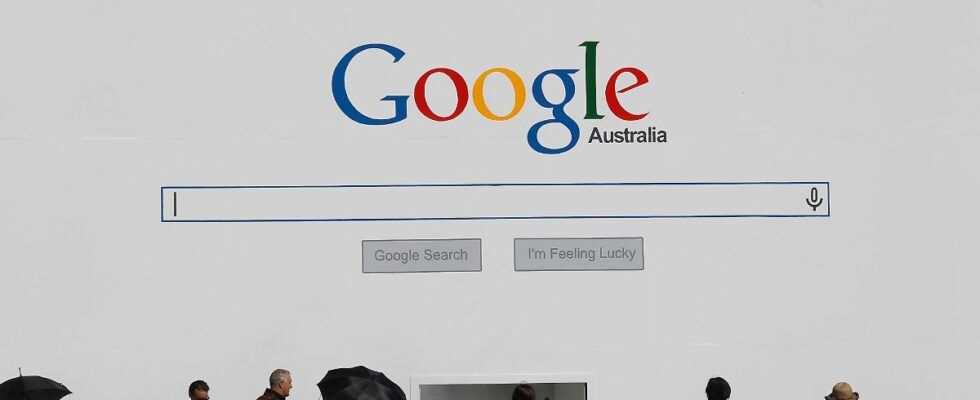Friday, January 22, 2021
Group gives up internet balloons
Google threatens Australia to shut down its search
Google shows third-party internet content so that it can be found – and earns well from it. Australia therefore wants Google to share the profits with local media. The company doesn't think that's funny at all. Google is canceling another project.
Internet giant Alphabet is threatening Australia with shutting down its Google search engine if it is obliged to pay media companies for the distribution of their content. The US group reacted to plans by the Australian government for new media guidelines, according to which IT giants like Alphabet or Facebook have to pay local media companies money if they distribute their content.
The bill stipulates that the Internet giants should negotiate a usage fee with publishers and broadcasters. If the negotiations fail, a state-appointed arbitrator should set the fees. "Should this version of the media guidelines become law, then we will have no other realistic option, except to make the Google search function in Australia no longer accessible," said Alphabet Manager Mel Silva, who is responsible for Australia and New Zealand, in a hearing from Senate Committee.
Project Loon abandoned
(Photo: picture alliance / dpa)
The Google parent company Alphabet is ending its attempt to supply remote regions with high-speed internet using balloons. The subsidiary Loon founded for this purpose is closed. "We have not found a way to reduce costs to the point that long-term sustainable business is possible," Loon boss Alastair Westgarth wrote in a blog post on Friday.
Google had already introduced the large balloons that can stay in the air for weeks in 2013. The idea was that remote and sparsely populated areas could be supplied with Internet in this way more cheaply than with conventional telecommunications infrastructure. In the meantime, Google and Facebook also tried drones for this purpose, but gave up these plans relatively quickly.
In contrast, Google definitely saw business potential in balloons. The project was brought to the independent company Loon in 2018 under the umbrella of the parent company Alphabet, which was created later. Only last year Loon started supplying a region in Kenya in cooperation with a local network operator.
The last balloons are still flying
Loon had to overcome enormous technical challenges: The balloons float around and transmit data to each other. But in the end it was even more difficult to build a business model. Internet access has become available in more and more regions in recent years – and in the remaining regions it is too expensive or uninteresting for the residents.
Therefore he came to the conclusion that Loon would never make a contribution to the profits of the group, said the head of the alphabet innovation laboratory X, Astro Teller, the magazine "Wired". Nevertheless, he regards it as a successful experiment: "True failure is when the data shows that you are not doing the right thing – and you continue anyway." Several dozen loon balloons are still in the air. They are expected to sink to earth over the next nine months and will then be collected.
. (tagsToTranslate) Business (t) Google (t) Alphabet Inc. (t) Australia
